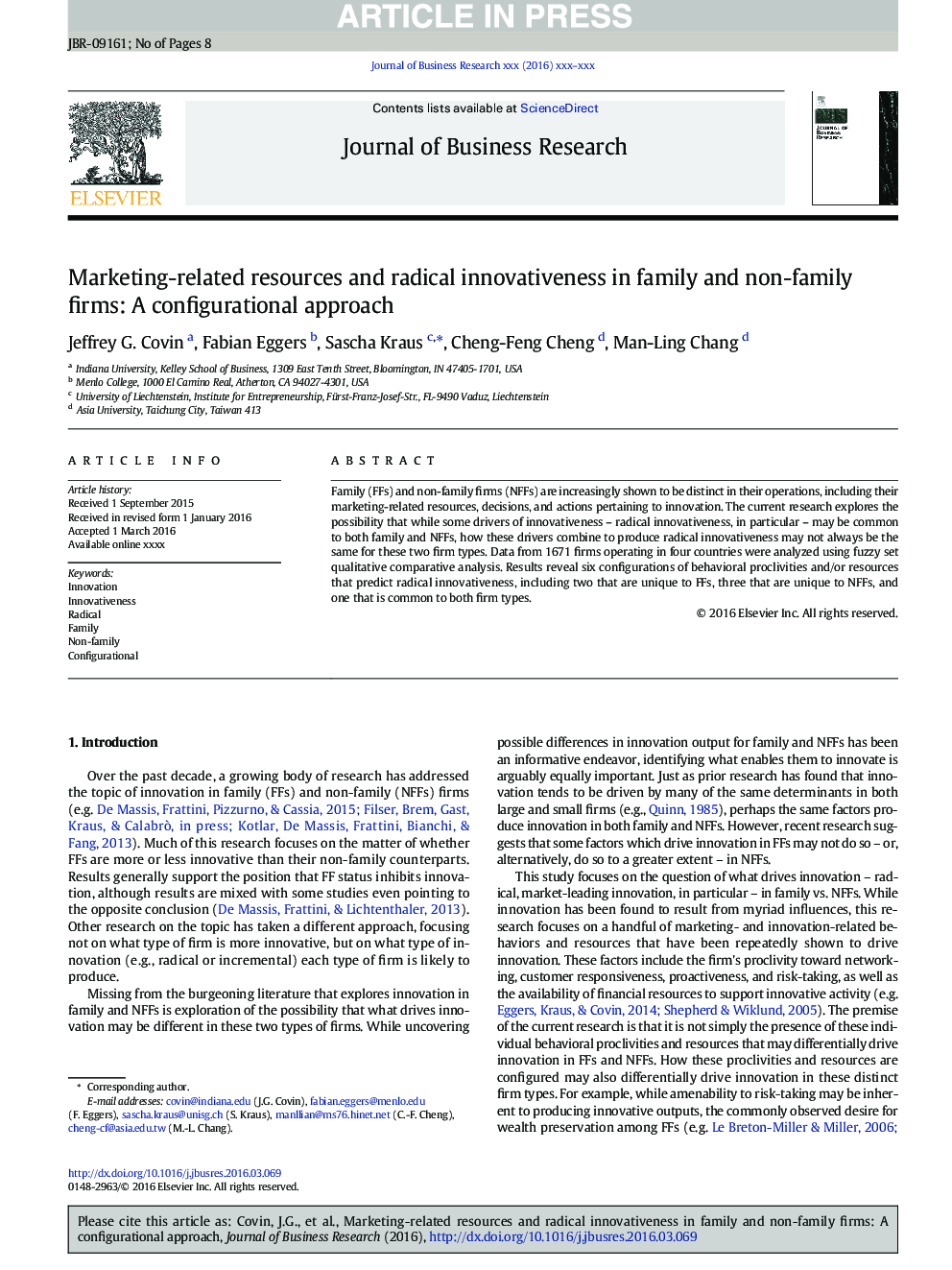| Article ID | Journal | Published Year | Pages | File Type |
|---|---|---|---|---|
| 5109632 | Journal of Business Research | 2016 | 8 Pages |
Abstract
Family (FFs) and non-family firms (NFFs) are increasingly shown to be distinct in their operations, including their marketing-related resources, decisions, and actions pertaining to innovation. The current research explores the possibility that while some drivers of innovativeness - radical innovativeness, in particular - may be common to both family and NFFs, how these drivers combine to produce radical innovativeness may not always be the same for these two firm types. Data from 1671 firms operating in four countries were analyzed using fuzzy set qualitative comparative analysis. Results reveal six configurations of behavioral proclivities and/or resources that predict radical innovativeness, including two that are unique to FFs, three that are unique to NFFs, and one that is common to both firm types.
Related Topics
Social Sciences and Humanities
Business, Management and Accounting
Business and International Management
Authors
Jeffrey G. Covin, Fabian Eggers, Sascha Kraus, Cheng-Feng Cheng, Man-Ling Chang,
